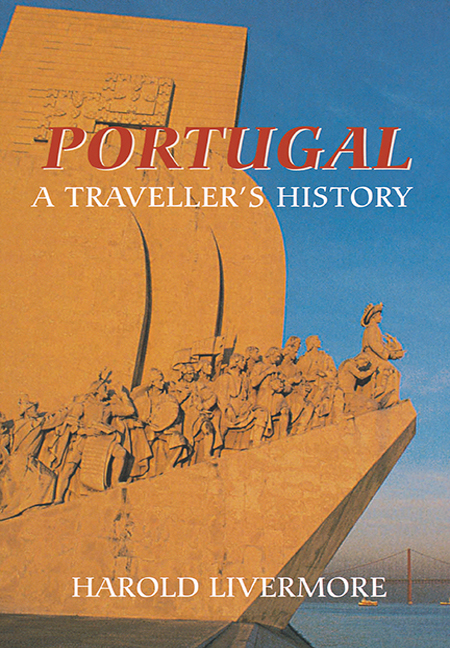Book contents
- Frontmatter
- Contents
- List of Illustrations
- Foreword
- 1 Introduction
- 2 Portugal in History
- 3 Before Portugal
- 4 Islamic Portugal
- 5 Architecture
- 6 Painting
- 7 Music
- 8 Birds
- 9 Fishing
- 10 Portuguese Wines
- 11 Lisbon
- 12 North from Lisbon
- 13 Oporto
- 14 North of Oporto
- 15 Interior Portugal
- 16 Alentejo
- 17 Algarve
- Afterword
- Index
- Frontmatter
- Contents
- List of Illustrations
- Foreword
- 1 Introduction
- 2 Portugal in History
- 3 Before Portugal
- 4 Islamic Portugal
- 5 Architecture
- 6 Painting
- 7 Music
- 8 Birds
- 9 Fishing
- 10 Portuguese Wines
- 11 Lisbon
- 12 North from Lisbon
- 13 Oporto
- 14 North of Oporto
- 15 Interior Portugal
- 16 Alentejo
- 17 Algarve
- Afterword
- Index
Summary
The first reader of this script remarked that I might have said more about contemporary Portugal. The thought had occurred to me, but it was not my intention to be involved in the complexities of today's world scene, of which future historians will take care. Nor can I pretend to be an expert on the night-life of cities, of which any hotel porter knows more than I. The entry of Portugal into the Euro-zone has been smoothly done, but its economic consequences can hardly be measured. It is no more difficult to travel in Portugal than in any other part of Europe, and less expensive, safer and pleasanter than most. The face of Lisbon is changing, but less offensively than that of London: its traffic jams may be noisier but they last less. There has been no wholesale abandonment of the countryside, and the flooding of water-courses for hydroelectric and agricultural ends makes an agreeable addition to a varied landscape.
Contemporary Portugal is not a great power and no longer the seat of a far-flung empire. Lisbon and especially the Algarve are more cosmopolitan. Those returning from Goa have been fully absorbed, but there are no whole sectors of activity in Indian hands, as has happened in London. The restaurants remain predominantly European, though Chinese are sufficiently represented. Even in the national game of futebol, Portugal prevails. Lisbon has more Africans than before. They come to study and work. It is the centre of the Portuguese communities of autonomous Africa, to which Portugal can offer a salutary friendship and an alternative to petty tyrants and predatory capitalism.
The Portuguese past is built into the present. The splendid new bridge across the Tagus to link Lisbon with the Alentejo and the Algarve was built to commemorate Vasco da Gama's opening of the sea-way to India in 1498, the climax of the epic Discoveries, with Pedro Álvares Cabral's discovery of Brazil in 1500. As well as the handsome modern station of Oriente, the event has produced the new oceanic aquarium, said to be the finest in the world, which replaces the more modest affair at Dafundo, the fruit of King Carlos's oceanic excursions. The pioneer of the Portuguese voyages of discovery, Prince Henry, was commemorated by the imposing collective monument at Belém, erected at the quincentenary of his death in 1940.
- Type
- Chapter
- Information
- Portugal: A Traveller's History , pp. 184 - 186Publisher: Boydell & BrewerPrint publication year: 2004



